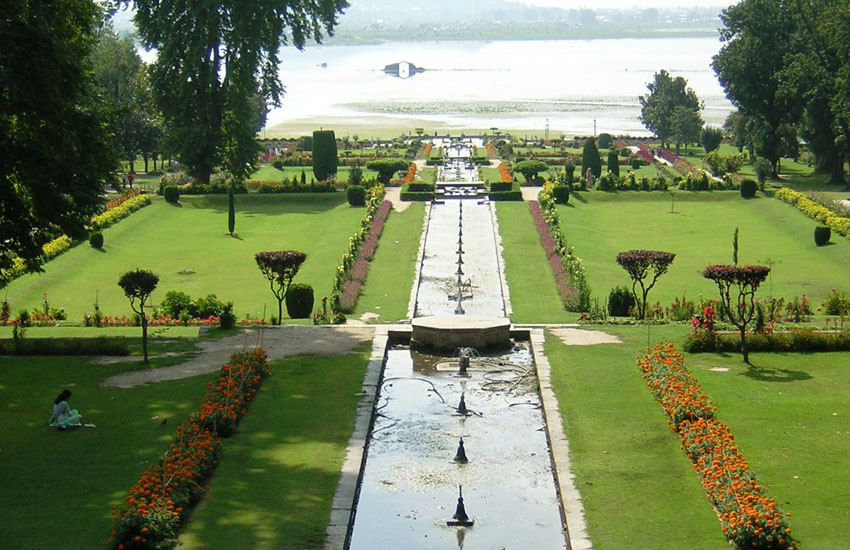


Nishat Bagh is a terraced Mughal garden built on the eastern side of the Dal Lake, close to Srinagar in the UT of Jammu and Kashmir, India. It is the second largest Mughal garden in the Kashmir Valley. The largest in size is the Shalimar Bagh, which is also located on the bank of the Dal Lake. ‘Nishat Bagh’ is Urdu, which means “Garden of Joy,” “Garden of Gladness” and “Garden of Delight. Located on the bank of the Dal Lake, with the Zabarwan Mountains as its backdrop, Nishat Bagh is a garden of bliss that commands a magnificent view of the lake beneath the snow-capped Pir Panjal mountain range that stands far away to the west of the valley. The Bagh was designed and built in 1633 by Asif Khan, elder brother of Nur Jehan. An interesting anecdote of jealousy of the Emperor Shah Jahan on beholding such a delightful garden, which almost shutdown the garden for some time, is narrated. When Shah Jahan saw this garden, after its completion in 1633, he expressed great appreciation of its grandeur and beauty. He is believed to have articulated his appreciation three times to Asif Khan, his father-in- law, with the hope that he would gift it to him. As no such offer was made by Asif Khan, Shah Jahan was piqued and ordered closure of the water supply to the garden. Then, for some time, the garden was deserted. Asif Khan was desolate and heartbroken; he was uninterested in the sequence of events. When he was resting under the shade of a tree, in one of the terraces, his servant was bold enough to turn on the water supply source from the Shalimar Bagh. When Asif Khan heard the sound of water and the fountains in action he was startled and immediately order closure of water supply as he feared the worst reaction from the emperor for this wanton act of disobedience. Fortunately for the servant and Asif Khan, Shaha Jahan, who had heard about this incident at the garden, was not disturbed or annoyed by the disobedience of his orders. Instead, he appreciated the servant for loyal service to his master and then ordered full restoration rights for the supply of water to the garden to Asif Khan, his Prime Minister and father-in-law. Mughal Princess Zuhra Begum was buried in the garden she was the daughter of Mughal Emperor Alamgir II, and granddaughter of Emperor Jahandar Shah.